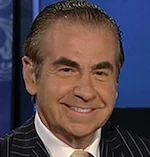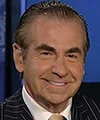 |
| Fraser Seitel |
The nominal White House Press Secretary is a perfectly likable woman named Karine Jean-Pierre, who likes to talk passionately about her justifiable pride in being the first Black and gay woman to hold this important position.
A year and a half into her tenure as President Biden’s Press Secretary, Ms. Jean-Pierre has demonstrated the danger of planting an under-qualified candidate into the highest-stress public relations position on the planet. In the face of withering and often unfair badgering by a rabid White House press corps, Ms. Jean-Pierre continues to be unsteady at best and unnerved at worst. It doesn’t help matters that she must defend an aging President who’s purposely sheltered from the media, or that she succeeded the eminently capable Jen Psaki, who was not only more experienced in the hot seat but also much closer to the President she served.
For all these reasons, in the days after Ms. Psaki’s departure, the Biden Administration wisely sought an “insurance policy” should Ms. Jean-Pierre falter in her new high-stakes job. So, a week after Ms. Jean-Pierre’s historic appointment as White House Press Secretary, a former Navy admiral named John Kirby, who had previously served as Chief Spokesman at both the State and Defense Departments, was quietly recruited to slide in as the National Security Council Coordinator for Strategic Communications.
Mr. Kirby is a public relations pro’s pro, experienced, knowledgeable and confident in answering any question at any time on any subject within his area of responsibility. Today, with wars in Ukraine and Israel dominating the Biden agenda, Kirby is the one whom the media and the public turn to for answers on Biden policy, principles and practice.
In other words, Mr. Kirby has become the de facto White House Press Secretary. And the Biden Administration couldn’t be happier or more relieved that it’s Mr. Kirby and not Ms. Jean-Pierre in the wartime public relations crucible.
Public relations professionals who deal with the media can learn much from Mr. Kirby. He takes on all comers, including dreaded Biden media enemies. Typical are the media interview lessons embedded in this excerpt from Kirby’s Fox News interview in the days after Hamas’ vicious attack on Israel.
First, deliver your “key messages.”
The primary responsibility for any media interviewee is no matter what they ask you, make sure you quickly and clearly lay out the “key messages” your employer needs you to deliver. In the case of the Biden Administration relative to Hamas, one burning early question was the U.S. response to Iran’s alleged involvement.
Initially, the U.S. disagreed with media reports that Iran masterminded the Hamas attacks, and Biden spokesmen tiptoed on blaming Iran. Here’s how Mr. Kirby dealt with Fox interviewer Martha MacCallum on this delicate issue.
MM: “One of the big questions is why there seems to be a hesitance or curious deference to calling out Iran’s involvement in all this. What would you say to people like former Defense Department Secretary Mark Esper who find this puzzling?”
JK: “I would tell the former Secretary of Defense that we’re looking hard at the intel stream and just haven’t seen any specific, tangible intelligence that the regime in Tehran was a witting resource participant in these specific attacks. But I also want to make it clear that we absolutely believe in the broad complicity of Iran here.”
Second, back up your key messages with hard factual evidence.
Most people are dubious about politicians and public relations mouthpieces for good reason. Much of the time, they speak well but say little, preferring to deal in generalities rather than backstopping their arguments with hard facts.
Here’s how Mr. Kirby scuttled Ms. MacCallum’s skepticism with evidence.
MM: “What’s the difference, John? What’s the difference?”
JK: “We understand that without Iran, there would be no Hamas, there would be no Hezbollah. But what I’m saying is we’re looking at it, but we haven’t yet seen the direct evidence. And if people are looking at us and saying ‘you’ve gotta hold Iran accountable,’ my goodness, Martha, take a look at what we’ve done in just two-and-a-half years. More than 400 entities in Iran sanctioned just by this Administration, 300 of them in the last year. Heck, we just did some a few weeks ago, and some of that was directly tied to entities that support their support of terrorist networks. We’ve bolstered our military presence, not just in the Eastern Med but in the Gulf region as well. We’re keeping a close eye on Iran … and we’re gonna keep doing that.”
Third, don’t get defensive, but also don’t give away the store.
Often, the reason someone’s hired as a spokesperson is because there are some questions your employer simply wants no part of. They expose sensitive conundrums in which the organization finds itself with no clear answers. Such questions are the last thing your CEO or plant manager or President wants to be confronted with, so she/he hires you to do it.
The trick—as Mr. Kirby illustrates here in response to the Biden Administration agreeing to unfreeze $6 billion of Iranian deposits—is to answer without getting defensive while avoid saying too much, which would lead to additional problems.
MM: “We have this issue of the $6 billion and why the White House won’t come forward and say that money is absolutely not available, not that it hasn’t been touched but that if it were requested, it would be denied.”
JK: “Yeah, we’re watching that money like a hawk, as you might imagine Martha. And you’re right, not a dime of it has been spent. And we’re watching it very, very closely. That’s about as far as I’m gonna go on that today.”
Fourth, speak conversationally not robotically; say it like you mean it.
Most politicians are glib—they essentially talk for a living—but they’re not credible. That’s why most people despise them. They repeat platitudes and canned phrases, rather than engaging in real back-and-forth conversation. Indeed, media training teaches novice interviewees to engrain in their minds those few key messages that they need to repeat over and again.
While that approach might suffice for unsophisticated media participants, a spokesman in the hot seat like John Kirby can’t expect platitudes and pronouncements to win the day. (That’s part of Ms. Jean-Pierre’s problem.) Rather, a believable, successful spokesman must be able to mix it up with a savvy interviewer and elaborate, risking all the what-ifs, hypotheticals and possibilities that real conversations entail.
MM: “Why not just say they will not be permitted to tap into any of the $6 billion, rather than you’re watching it. That sounds like you could watch them come access some of it.”
JK: “Even if they did try … Let’s say they tried to access it last week with an approved transaction. What would happen is, Martha, we would validate if it was an approved request for food, medicine, crops, that kind of thing, and then we would select the vendors who would go buy that stuff and then ship it into Iran directly through humanitarian organizations to get to the Iranian people. The regime in Tehran would never see a dime of it. I want to make it clear to your viewers that when we say ‘access,’ it’s not like they get to cut a check and the regime gets that money. They never ever get it.”
Fifth, finish with “the vivid air signed with your honor.”
That’s how the Greeks put it. It means, “end strong.” Don’t let the interviewer browbeat you into giving an inch. Stick to your beliefs and the rightness of your argument. And finish up memorably, reprising your key messages.
Here’s how Mr. Kirby concluded his contentious interview with Ms. Mac Callum.
MM: “It feels like there’s a reluctance to step on the toes of Iran, John.”
JK: “No ma’am. I’m sorry Martha, I just don’t agree with that. Not at all. I’ve gone through a lot of it. We’ve issued 400 sanctions against Iran. We’ve improved and increased our military posture in the region. We’ve responded swiftly when they attacked our troops in Iraq and Syria. We’ve got the longest truce ever in Yemen’s history. We’re not in discussions about the Iran deal anymore since they weren’t negotiating in good faith. We are not losing sight of the threat that Iran poses.”
Historically, the best Presidential press secretaries—Ari Fleischer and Tony Snow to George H.W. Bush, Robert Gibbs and Josh Earnest to Barack Obama, Ms. Psaki to Mr. Biden—weren’t only trusted advisors but also supremely confident and competent media spokespeople.
John Kirby is rapidly earning his place on this short list of history’s greatest White House Press Secretaries. Even if, technically, he isn’t one.
***
Fraser P. Seitel has been a communications consultant, author and teacher for 40 years. He is the author of the Pearson text “The Practice of Public Relations,” now in its 14th edition, and co-author of “Rethinking Reputation" and "Idea Wise.” He may be reached directly at [email protected].


 LSU women’s basketball coach Kim Mulkey’s attacks on a Washington Post profile as a "hit piece," before it was even published, caught the attention of five million people—a far bigger number than the readers of the paywalled article.
LSU women’s basketball coach Kim Mulkey’s attacks on a Washington Post profile as a "hit piece," before it was even published, caught the attention of five million people—a far bigger number than the readers of the paywalled article.  The art of capturing the attention of the right journalist with the right pitch.
The art of capturing the attention of the right journalist with the right pitch.
 With live press events making a comeback, here a few hints for making yours a success.
With live press events making a comeback, here a few hints for making yours a success. Why the practice of advising a client to do the right thing is the true test of a public relations practitioner.
Why the practice of advising a client to do the right thing is the true test of a public relations practitioner.


 Have a comment? Send it to
Have a comment? Send it to 
Oct. 17, 2023, by David Prosperi
Having served as Assistant WH press secretary to Ronald Reagan working alongside Jim Brady and Larry Speakes, and having watched the work of those who stand at the briefing room podium every, I liked and agreed with your assessment of Kirby. I read the situation exactly the same way, and if the President wins a second term, Kirby will have a chance to truly prove his worth on an everyday basis. It is a no-win role but he is holding his own.